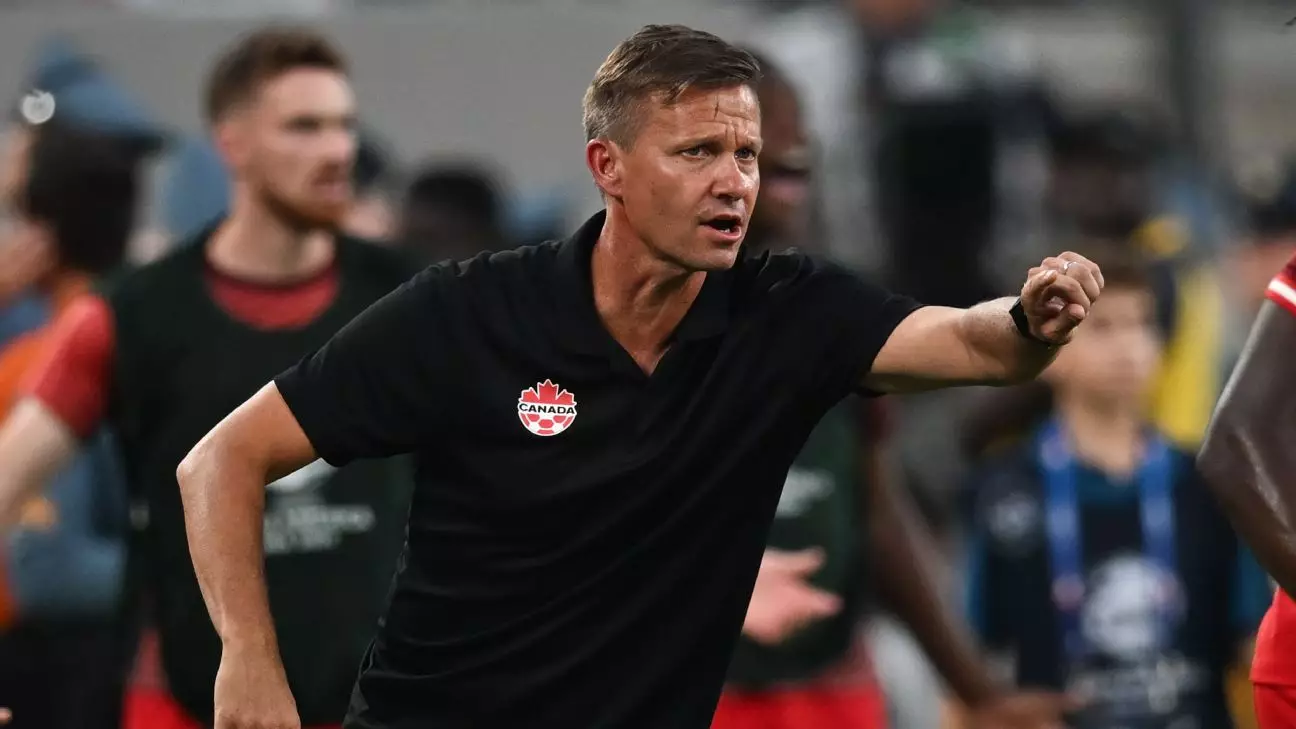As Canada gears up for its participation in the Concacaf Gold Cup, head coach Jesse Marsch finds himself not only strategizing for matches but also navigating the tumultuous waters of political sentiment surrounding cross-border travel. With increasing caution among Canadian supporters regarding trips to the U.S., Marsch acknowledges the underlying anxiety shaping fan attendance. In a candid statement during a recent Zoom press conference, he remarked, “I could see trepidation for anyone looking to travel to the U.S. at this current political climate.” This sentiment does not merely reflect concerns about soccer; it encapsulates a larger narrative of uncertainty.
The context of Martch’s comments is steeped in real experiences: stories of Canadian citizens facing distress at the U.S. border have made headlines, casting a shadow over Mexico and the U.S. co-hosting of the upcoming World Cup. Each story is a stark reminder to Canadians of the political climate they are up against. For instance, the high-profile case of Jasmine Mooney, a Canadian actress and entrepreneur, who endured a 12-day detention by U.S. border agents, amplifies the fears that might discourage Canadians from supporting their national team across the border.
Impact on Fan Engagement
Marsch’s concerns echo through the statistics; a 20% decline in air return trips and 35% in car travel for Canadians returning from the U.S. in April is indicative of a pervasive wariness among fans. These numbers could reflect not just a dip in interest but a broader symptom of apprehension that deters fans from engaging in potentially fraught travel experiences. It is indeed a sad reflection of how politics can tarnish a shared love of sports, turning what should be a jubilant occasion, filled with national pride, into a source of angst.
When it comes to the Gold Cup, Canada has potential glory on the horizon. Marsch has highlighted the unfortunate irony of this situation; he believes it would be a tragedy if their “fans didn’t show the kind of support that I think our team deserves” simply due to fear and uncertainty surrounding travel. The stakes are not just about the matches; they lean heavily into the cultural fabric of shared experience among fans—confidence and unity that is often derived from collective attendance and enthusiasm.
Leadership Beyond the Field
Jesse Marsch’s role as coach extends beyond issuing tactical directives; it encompasses being a beacon of resilience and an advocate for the Canadian soccer community. His appointment comes with high expectations, especially with Canada serving as a co-host for the World Cup alongside the United States and Mexico in the following years. With an ambitious goal of reaching the tournament’s final, the pressure is mounting. While the actual game plans are vital, equally important is the psychological readiness of both the players and supporters as they prepare for the on-field battles ahead.
Marsch himself faces additional challenges—having been suspended for two games due to conduct issues in a previous match against the U.S.—reminding all that leadership also entails personal accountability. Such suspensions, however inconvenient, present an opportunity for him to cultivate a deeper bond with fans. His absence from the sidelines could spur a rallying cry, provoking supportive fervor among supporters and players alike.
A Call to Unity
Winning the Gold Cup is more than merely a sporting triumph; it is an assertion of national pride in the face of adversity. Such an achievement could serve to unify and inspire. With Canada kicking off the tournament against Honduras in Vancouver and subsequently playing in Houston against Curaçao and El Salvador, the projected matches are critical venues for not only showcasing athletic prowess but also for resurrecting fan enthusiasm.
As the tournament approaches, the focus must remain on building a narrative that transcends fear and focuses on community and soccer—an opportunity for Canadians to support their team while creating lasting memories and strengthening bonds. Marsch’s earnest hope for a strong fan turnout in this political fog represents a larger plea for solidarity; a chance for a diverse group of individuals to unite under a common aim and cheer loudly, regardless of the political climate that looms.

